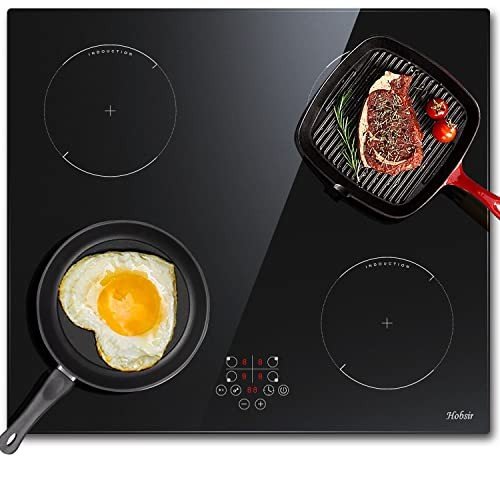Understanding Electric Ovens and Hobs: Your Guide to Cooking Efficiency
Electric ovens and hobs have actually transformed the culinary landscape, offering home cooks and professional chefs a trusted, efficient, and constant way to prepare meals. As technological improvements continue to affect appliance design, the performance and functionality of electric cooking systems have considerably enhanced. This post looks into the features, advantages, and factors to consider surrounding electric ovens and hobs, supplying a comprehensive summary for anybody seeking to upgrade or buy kitchen home appliances.
What Are Electric Ovens and Hobs?
Electric ovens are kitchen appliances developed for baking, broiling, roasting, and other cooking approaches that need regulated heat. They make use of electric coils or radiant heat aspects to generate and preserve the desired temperature level. Electric hobs, frequently described as electric cooktops, are flat surfaces with heating elements that allow pots and pans to be positioned straight on them for cooking.
Table 1: Key Differences Between Electric Ovens and Hobs
| Function | Electric Oven | Electric Hob |
|---|---|---|
| Primary Function | Baking, roasting, broiling | Heating pots and pans for cooking |
| Heating Method | Electric coils or glowing elements | Induction, radiant, or ceramic aspects |
| Operation Temperature Range | Approximately 500 ° F (260 ° C | ) Varies by design; normally lower than ovens |
| Cooking Styles | Versatile; ideal for different dishes | Mainly stovetop cooking methods |
| Space Requirement | Generally built into kitchen cabinetry | Frequently standalone or built-in options |
| Energy Consumption | Usually greater, depending on use | More energy-efficient with induction hobs |
Benefits of Electric Ovens and Hobs
When thinking about electric ovens and hobs, it's necessary to understand their various advantages, which can enhance the cooking experience.
1. Constant Heating
Electric ovens and hobs supply even and consistent heating, which is essential for many cooking methods. This ensures that meals cook uniformly, decreasing the opportunities of overcooking or undercooking particular locations of food.
2. Safety Features
Modern electric ovens and hobs come geared up with different security features to avoid mishaps in the kitchen. For example, many models include automated shut-off functions, hot surface area indicators, and child security locks.
3. Easy to Use
Unlike gas designs, electric ovens and hobs are straightforward and easy to use. The simplicity of switching on a dial or pushing a button makes them available for cooks of all skill levels.
4. Versatile Cooking Options
With different cooking techniques possible, from baking to simmering, electric models are flexible enough to accommodate a wide variety of cooking styles and preferences.
5. Cleaning up and Maintenance
Electric ovens usually include smooth surfaces that are easy to clean, particularly models with self-cleaning abilities. Hobs, specifically induction types, likewise offer a flat surface area that is easy to wipe down, making maintenance a breeze.
Popular Types of Electric Ovens:
- Conventional Ovens: Ideal for conventional baking and roasting.
- Convection Ovens: Circulate hot air for quicker, even cooking.
- Microwave Ovens: Use electromagnetic radiation for quick heating and cooking.
- Toaster Ovens: Small counter top ovens for fast jobs.
Popular Types of Electric Hobs:
- Induction Hobs: Utilize magnetic fields for fast heating and energy effectiveness.
- Glowing Hobs: Feature electric coils that warm up to prepare food.
- Ceramic Hobs: Offer a smooth surface area and are easy to clean.
Considerations When Choosing Electric Ovens and Hobs
While electric ovens and hobs offer numerous advantages, a number of aspects need to be considered to ensure the ideal fit for your kitchen:
1. Area Availability
Evaluate the readily available kitchen space before making a purchase. Determine whether you need an integrated design or a freestanding appliance, and measure the dimensions thoroughly to make sure a good fit.
2. Cooking Needs
Identify your cooking routines and choices. If you frequently bake big amounts or cook complex meals, consider an oven with advanced features like convection settings or numerous racks.
3. Energy Efficiency
Try to find energy-efficient models that can assist save on energy bills in time. Buy Ovens Uk -rated devices can be particularly affordable.
4. Budget
Set a sensible budget plan that represents both the initial purchase and ongoing operating expense. In addition to the appliance cost, consider setup and prospective repair work.
5. Additional Features
Think about whether features like clever technology, programmable settings, or steam cooking options are very important for your cooking design.
FAQ Section
Q: How do I tidy my electric oven?
A: Most electric ovens come with self-cleaning alternatives. If your design does not have this feature, enable the oven to cool, then wipe down surfaces with a mix of baking soda and water or an industrial oven cleaner.
Q: Is induction cooking safe?
A: Yes, induction cooking is considered safe as the heating component only activates when compatible cookware touches with it, reducing the risk of burns.
Q: How long does it take for an electric oven to preheat?
A: Preheating times differ based upon the oven's design and temperature level setting but usually range from 10 to 15 minutes.
Q: Can I utilize any pots and pans on an induction hob?
A: No, only ferromagnetic pots and pans works with induction hobs. Inspect for induction compatibility before use to prevent damage.
Q: What is the distinction in between a convection oven and a traditional electric oven?
A: A stove consists of a fan that distributes hot air, guaranteeing even cooking and decreased cooking times compared to a conventional electric oven, which does not have this function.
Electric ovens and hobs supply a modern-day solution to different cooking requirements, using effectiveness and reliability in the kitchen. As consumers evaluate their options, understanding the functions, types, and considerations will enable them to make educated decisions. Whether one is a periodic cook or a cooking lover, electric home appliances can enhance the total cooking experience, bringing benefit and creativity to the table.

